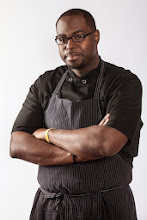In 1903, W.E.B. Dubois penned the essay of that title. It serves as a brief history of the education, as it was, of the American Negro. I suppose today it would be more politically correct to use the label African American, even though I question if Dubois would have maligned the use of it for it's inherent flaws, at least until he became a citizen of Ghana. Even then I suppose he might have more appropriately described himself even then as an American African. Or perhaps not. In my reading of a great deal of his writing, I found him to be a most pragmatic and practical thinker.
The intent of the paper was to, outside of chronicling the inefficiencies of the system of the day, was to present a strategy, slow and calculated, for the elevation of the race. The cornerstone of this strategy was and continues to be access to proper education, which continues to be an issue for members of many cultures. His assertion, at least by my approximation, was the the talented, or educated tenth of Negroes at that time that had attained, after no small amount of struggle, entry into the middle class either by formal education, or self education pair with natural inclination and talent, lead the way to providing this education.
This concept is predicated on the hope that this tenth has, a) the ability and b) the desire to accept, the responsibility of taking hold of the collective consciousness in an attempt to elevate it.
As time progressed, other scholars such as Dr. Cornell West and Henry Louis Gates and others more familiar and perhaps more media savvy and less scholarly such as Tavis Smiley, have over much consideration and time, further defined and expounded on the responsibility of which this "tenth" might accept.
It still hinges on education, but has grown to include the support of financial responsibility as well as the development of the entrepreneurial spirit. It also, as always places heavy emphasis on the enrichment of "The soul (or spirit) of black folk", whether by means of the church or by other means. Other means such as limiting and finding a counterbalance to all of the cultural junk food that we ingest.
I was having a conversation with my father to days ago and we discussed this concept of the tenth. At some point I had an epiphany of sorts. I thought that Barack Obama might personify that ideal. I didn't stop thinking that, I still do.
Gasp! You really didn't see that coming, did you?
When I look at the origins of the man and match that with the path of public service that he's chosen to pursue, seeking to organize and activate the community as opposed to simply seeking to use his talents to line his pockets as a high powered lawyer or or lobbyist. Imagine what a force that charisma would exert over a jury or a senate subcommittee.
For me, the key lies in his stated desire, his track record, of energizing and motivating the people, all of the people to lift up their communities and now the country. The blueprint he's laid out of how to get there speaks to me in easy to understand tones. There's nothing highbrow or inaccessible about it.
It includes the same thing leaders have always pointed to as the way - affordable, accessible education. A solid health care plan with ready access to those who need it. Today, these things are above the reach of such a large section of the population. The difference, and it's here where I believe that there is a difference to be seen, is that it's not a promise to give us those things. He wants to lead this talented tenth, whether it be a tenth or more, and all men by that token to reach these things and make them attainable for all.
How many more students would get to colleges and universities if it could all be attained without having to submerge themselves and their families into debt. Imagine an influx of young, hungry minds, freshly schooled flooding the ranks of the professional. New doctors, lawyers, engineers and scientists, all with fresh perspective and ideas, a melting pot of so many cultures, seeing things anew. All of these minds with different viewpoints and cultures with varying approaches to life could collaborate to ... well, change the world.
Then maybe there could be a shift and then we, we the people, could be the "talented tenth" of the world population. Maybe we could work to carry that responsibility forward into a new age.
"Men of America...", wrote Dubois, "...the problem is plain before you. If you
do not lift them up - they will pull you down. Education and work (to which I
add faith) are the levers to uplift a people. Education must not simply teach
work - it must teach life. The talented tenth... must be leaders of thought and
missionaries of culture..."

